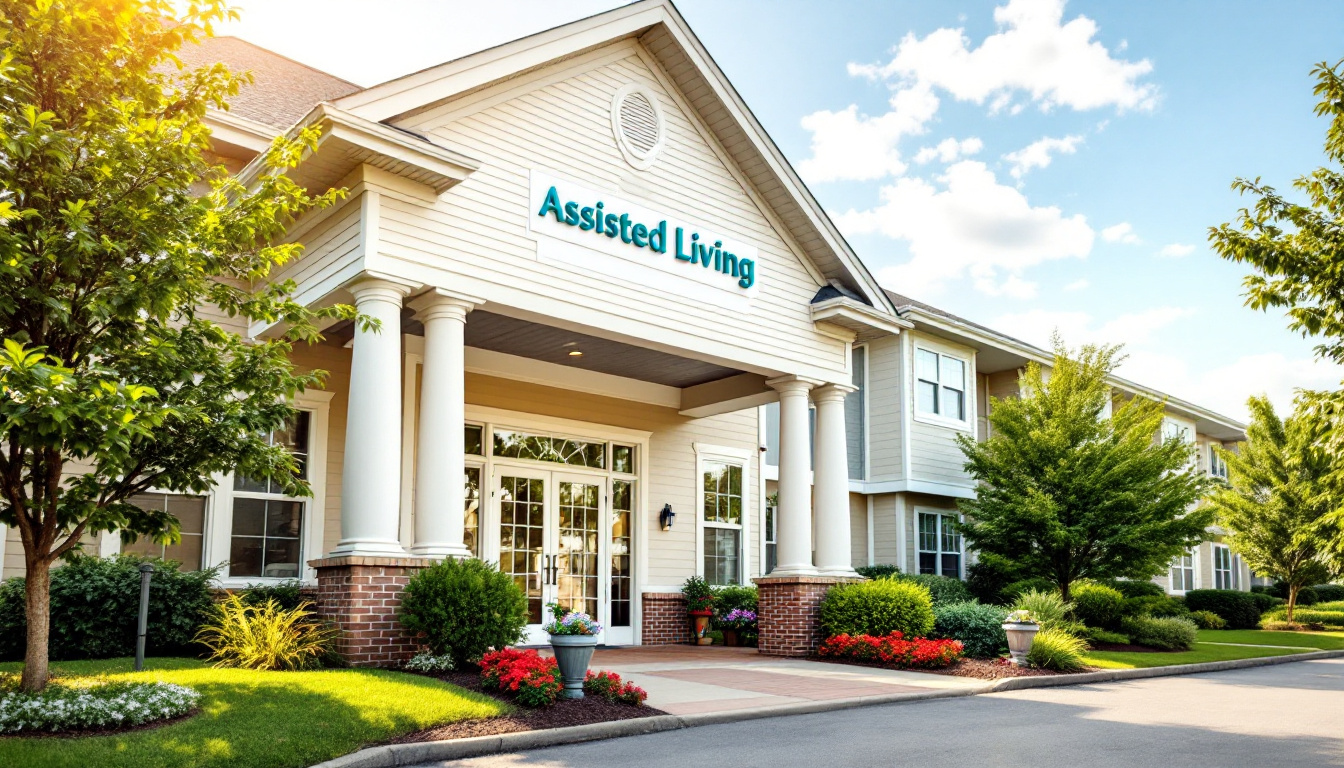How to Advocate for a Loved One in an Assisted Living Community
Empowering Families: Navigating Advocacy in Senior Care

Understanding the Role of Advocacy in Elder Care
Advocacy for a loved one in an assisted living community is a vital process that ensures their rights, needs, and preferences are prioritized. It involves active participation, informed decision-making, and compassionate support to foster a safe, respectful, and dignified environment. This article explores effective strategies, legal considerations, communication tips, and practical steps to empower families to be strong advocates for their seniors.
Understanding Your Role as a Senior Advocate

What is a senior advocate?
A senior advocate acts as a dedicated supporter and representative for elderly individuals, ensuring their needs, preferences, and rights are prioritized in healthcare and daily living decisions. Their role involves managing communication between the senior and care providers, legal and financial arrangements, and ensuring overall well-being.
Protecting dignity, privacy, and autonomy
A central part of advocacy is respecting the senior’s dignity and independence. Advocates should listen carefully to their loved ones’ wishes, honor their personal beliefs, and promote their autonomy. This includes supporting participation in care planning, decision-making, and social activities, which helps preserve their sense of control and self-respect.
Managing medical, legal, and financial decisions
Effective advocates educate themselves about the elder’s health condition, medication, and legal documents such as power of attorney, living wills, and healthcare proxies. They attend medical appointments, ask questions, and review treatment options to ensure appropriate care. Additionally, advocates gather important financial and healthcare records to streamline decision-making and ensure that the senior’s rights and resources are protected.
Building collaborative relationships with care providers
Establishing open communication channels with healthcare staff and community care teams is essential. Advocates should foster respectful, ongoing relationships with care providers to facilitate clear information exchange, address concerns proactively, and ensure the senior’s needs are appropriately met. Attending care meetings and participating in regular visits helps monitor care quality and supports effective advocacy.
Roles and responsibilities in assisted living
In assisted living environments, advocates uphold residents’ rights to privacy, dignity, and participation. They educate themselves on the resident’s medical history and legal protections, communicate their wishes to staff, and ensure transparency in care decisions. Advocates also oversee the quality of daily routines, address problems promptly, and help residents access social activities and community services. When issues like neglect or abuse arise, the advocate intervenes to seek justice and safeguard the resident’s safety.
| Aspect | Responsibilities | Additional Details |
|---|---|---|
| Legal and Financial | Ensure legal documents are in order; manage resources | Power of attorney, healthcare proxies, insurance, and benefits |
| Medical Care | Understand health conditions; communicate with staff | Attend appointments, review treatments, monitor health changes |
| Emotional and Social Support | Maintain dignity and independence | Encourage participation, plan social activities, listen empathetically |
| Monitoring and Reporting | Observe care quality; document concerns | Regular visits, detailed records, reporting abuse or neglect |
| Relationship Building | Foster trust and open dialogue | Frequent communication, respect, collaboration |
Advocacy requires patience, persistence, and compassion. By building strong relationships with care teams, respecting your loved one's autonomy, and staying informed, you can effectively support their well-being and rights during their golden years.
Selecting and Transitioning into Assisted Living

How do I navigate the process of selecting and transitioning a loved one into assisted living?
Choosing the right assisted living community for a loved one is a careful process that requires detailed research and planning. Start by visiting multiple facilities in person, paying close attention to cleanliness, staff interactions, and the overall environment. It's essential to consider your loved one’s specific needs, preferences, and level of independence to find a good fit.
Involving your loved one in the decision-making process is important. Open discussions about their wishes for living arrangements, care preferences, and social activities help them feel respected and maintain their autonomy.
Once you've selected a suitable community, plan the move meticulously. This includes helping your loved one pack familiar belongings such as photos and keepsakes to create a comforting environment in their new home. Measure space and coordinate with the facility to ensure the furniture and items fit well.
Providing emotional support during this transition is crucial. Visit frequently, encourage social interaction, and listen empathetically to your loved one’s feelings to ease feelings of separation or anxiety. Remember, emotional adjustment takes time, and patience is essential.
In addition to careful planning, review all legal and financial documentation, including understanding the costs involved and the necessary legal paperwork like power of attorney and healthcare proxies. Keeping open lines of communication with the staff and regularly monitoring your loved one's well-being will help ensure they receive quality, respectful care during this significant life change.
For more guidance, searching for resources with phrases like "How to transition a loved one into assisted living" can provide additional detailed strategies and local support options.
Supporting Emotional Well-being and Social Integration
 Supporting a loved one’s emotional health in senior care settings is essential for their overall well-being. Creating a warm and familiar environment with personal touches such as cherished photos and keepsakes can foster feelings of comfort and belonging. Open and honest communication with care providers, including participation in care planning, helps ensure that their preferences and needs are consistently respected, reinforcing their sense of control and dignity.
Supporting a loved one’s emotional health in senior care settings is essential for their overall well-being. Creating a warm and familiar environment with personal touches such as cherished photos and keepsakes can foster feelings of comfort and belonging. Open and honest communication with care providers, including participation in care planning, helps ensure that their preferences and needs are consistently respected, reinforcing their sense of control and dignity.
Encouraging involvement in social activities and community events plays a significant role in reducing feelings of loneliness and isolation. Regular visits and meaningful interactions—such as sharing meals or engaging in hobbies—support emotional resilience and stimulate cognitive function.
Monitoring for changes in mood, behavior, or health is vital for early intervention. Noticing signs of emotional distress or behavioral shifts allows caregivers and advocates to address issues promptly, which can prevent further decline.
Maintaining open lines of communication with family members also contributes significantly to emotional well-being. Keeping everyone informed, involved in decision-making, and supportive of the elder’s wishes ensures a cohesive approach to care.
Supporting emotional health in seniors is about fostering a sense of safety, community, and purpose. When families and caregivers work together, they help create a positive environment that promotes happiness, stability, and dignity for their loved ones.
Effective Communication with Healthcare Providers and Facility Staff
How can I prepare for talking with healthcare providers and staff?
Being well-prepared is essential. Before any appointment or meeting, compile a list of questions and concerns related to your loved one’s health and well-being. Organize all relevant medical records, medication lists, and notes on recent changes or incidents. This preparation helps ensure that critical details are not overlooked and that discussions are focused and productive.
What strategies build respectful relationships?
Approach staff and healthcare providers with professionalism and courtesy. Introduce yourself clearly and explain your role as an advocate or family member. Show respect for their expertise, foster open dialogue, and listen actively. Asking targeted, specific questions about treatment plans, medications, and daily routines encourages clearer communication.
Why is attending care plan meetings important?
Participation in care planning is crucial. These meetings provide an opportunity to review treatment options, express your loved one’s preferences, and ask about any behavioral or health changes. Your involvement ensures that care aligns with your loved one’s needs and values, and it helps you stay informed about their evolving condition.
How do I keep track of health changes?
Regular documentation is vital. Keep detailed records of any changes in behavior, new symptoms, medication responses, or incidents like falls or injuries. This documentation supports informed decision-making, facilitates communication during reviews or meetings, and can be important when addressing concerns or disputes.
How can I advocate effectively for my loved one's preferences?
Clearly communicate their wishes and needs, emphasizing the importance of respecting their autonomy and dignity. Confirm that their preferences are documented in care plans and legal documents such as advance directives. Assertively but respectfully address any deviations from these preferences to ensure consistent and person-centered care.
How can I foster ongoing communication?
Maintain regular contact with healthcare providers and facility staff through phone calls, emails, or visits. Establish open channels of communication, and request updates on health status and daily routines. Building trust and a partnership with the care team enhances advocacy efforts and helps promptly address issues as they arise.
Legal Rights and Protections in Assisted Living

What are the legal considerations and residents' rights in assisted living communities?
Residents of assisted living facilities possess a range of legal rights that protect their dignity, independence, and privacy. These rights include the right to receive clear and complete information about services, costs, and any changes that may affect their care. They can participate actively in all aspects of their care planning and make personal choices regarding their daily lives.
Furthermore, residents have the right to manage their financial affairs unless a legal guardian or power of attorney has been designated. It's essential for residents and their families to understand these protections to advocate effectively.
Legal considerations in assisted living focus on ensuring residents' informed consent, safeguarding against abuse and neglect, and preventing discrimination. Residents should be aware of their right to voice grievances and seek remedies if their rights are violated.
Access to medical records and the right to privacy are fundamental. Residents can request access to their health information and communicate privately with healthcare providers and loved ones. facilities are obligated to respect these rights by maintaining confidentiality and allowing private visits.
In addition, residents have procedures to report concerns or complaints, known as grievance procedures. These processes are designed to resolve issues fairly and promptly, ensuring residents' concerns are addressed without fear of retaliation.
Overall, adherence to federal and state laws is critical for these rights to be protected. Facilities must provide transparent information, respect residents' autonomy, and uphold legal protections, fostering a safe and respectful environment for all residents.
Ensuring Quality Care and Monitoring for Safety
How can I effectively monitor and ensure the proper care and well-being of a loved one in assisted living?
Monitoring the care and safety of a loved one in an assisted living community requires active participation and vigilance. Regular visits at different times of day allow you to observe their daily routines, interactions with staff, and overall environment. Paying attention to signs of neglect or health decline—such as unexplained injuries, poor hygiene, or changes in behavior—can alert you to potential problems.
It's important to use available resources to evaluate care quality. Tools like Medicare’s Nursing Home Compare website and ProPublica’s Nursing Home Inspect provide inspection reports, ratings, and detailed reviews of facilities. These sources help identify facilities with high standards or areas needing improvement.
Keeping thorough records of incidents, concerns, and conversations with staff is crucial. Documenting issues like medication errors, falls, or unexplained injuries can strengthen your case when addressing concerns with management or authorities.
If abuse or neglect is suspected, timely reporting is essential. You can contact residents’ families, social workers, adult protective services, or law enforcement agencies to ensure proper investigation and action.
Understanding the care standards and regulations that oversee these facilities helps you advocate effectively. Stay informed about facility compliance, violation history, and enforcement actions by reviewing inspection reports and regulatory notices.
Consistently engaging with the staff by attending meetings, asking questions, and expressing your concerns fosters transparency and accountability. Encouraging staff training and safety protocols further safeguards your loved one.
Through active, informed involvement, you can help maintain high care standards and create a safer environment for your loved one, peace of mind for your family, and promote ongoing quality improvements in assisted living settings.
Empowered Advocacy for Better Quality of Life
Advocating effectively for a loved one in an assisted living community is a continuous process that demands knowledge, patience, and compassion. By understanding your loved one’s rights, building strong communication channels, participating actively in care decisions, and utilizing available resources, families can influence positive outcomes and ensure their loved ones thrive physically, emotionally, and socially. Remember, your role as an advocate is vital in safeguarding dignity and fostering independence, ultimately empowering your loved one to enjoy a higher quality of life in their new home.
References
- How to Be an Effective Advocate for Your Loved One
- How to Support Your Loved One in an Assisted Living Community
- Advocating for Your Loved One's Care in Senior Living
- How to Advocate for a Nursing Home Resident - Sokolove Law
- How To Advocate for Your Loved One's Care and Well-Being
- How to Advocate for Your Loved One in Assisted Living
- How to be an Advocate for Your Parents During the Assisted Living ...




































































































